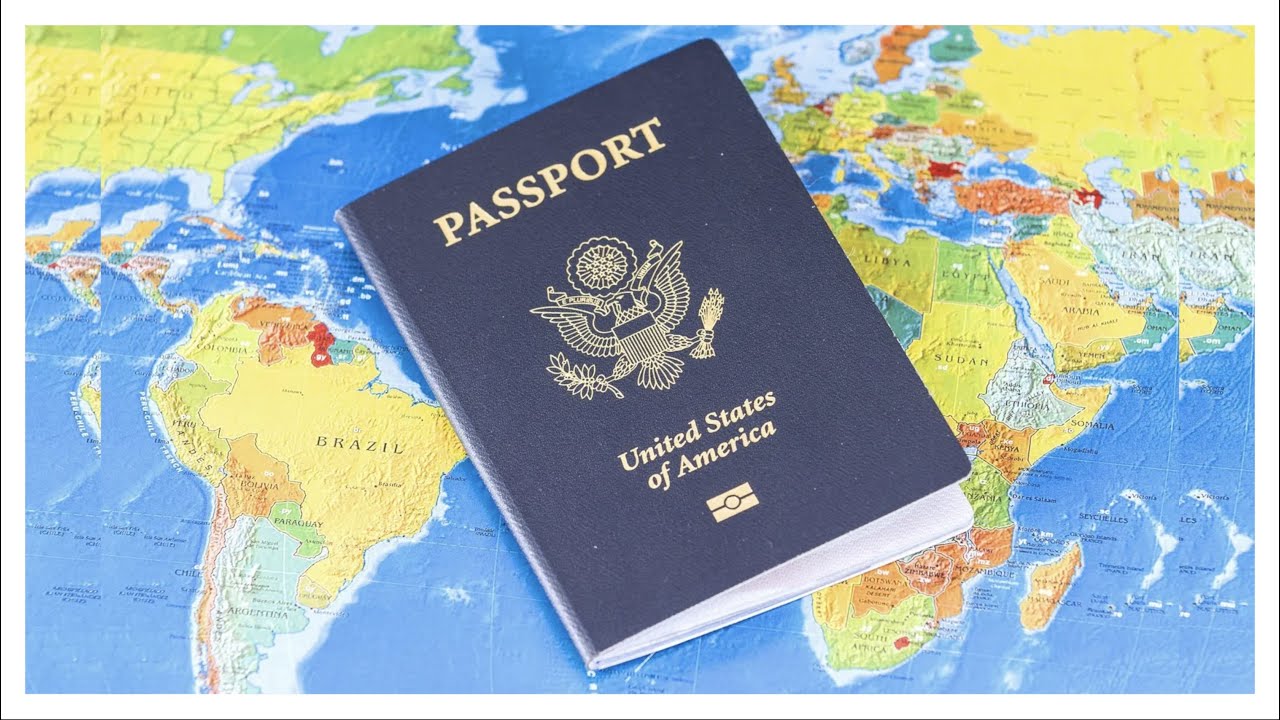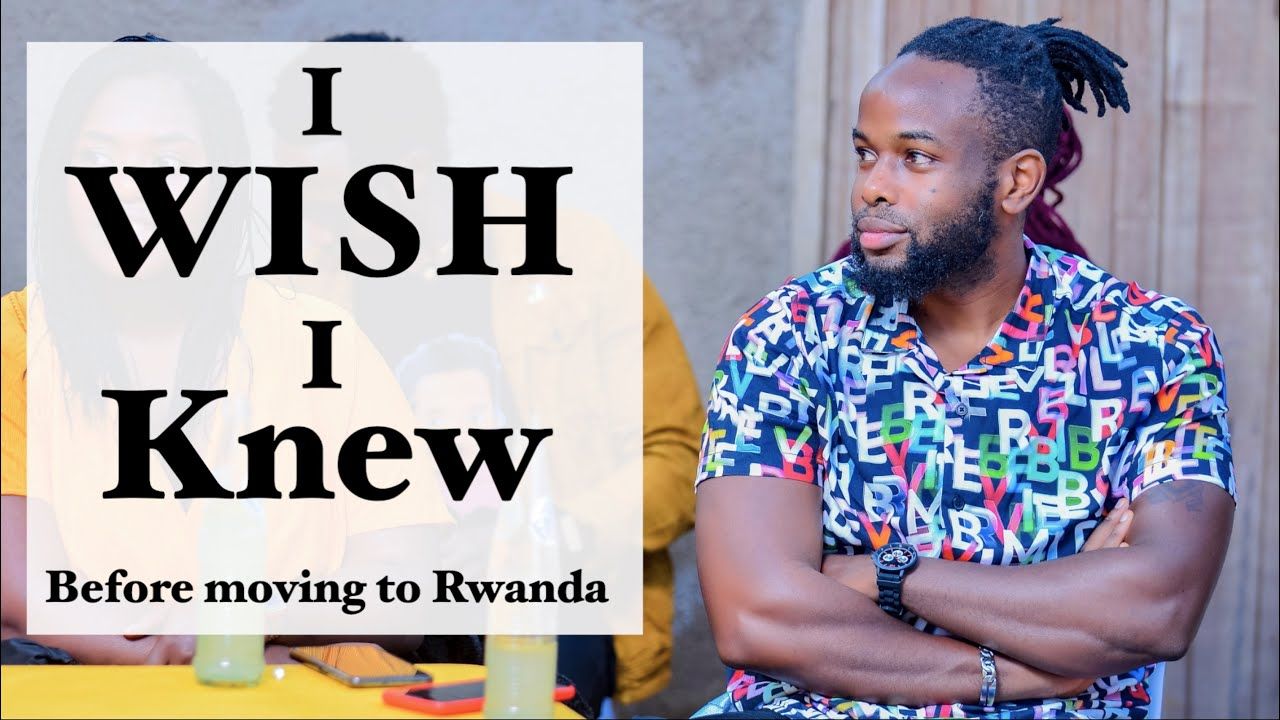How to find a house in Kigali Rwanda. | Costs of Rent, Utilities, Property taxes
August 24, 2021
How to find a house in Kigali Rwanda. | Costs of Rent, Utilities, Property taxes
One of the questions I get asked a lot is ‘What are the costs of living in Rwanda?’. This question is very complicated and in order to answer I have to divide it into multiple parts. This is part one about the costs of housing and everything around it (Rent, Utilities and Property taxes).
Of course, if you stick around, in the end I’ll tell you how I was able to find my house in one of Rwanda's most expensive and safest neighborhoods without being overcharged and with a decent rent.
1. How to find a house
The house you live in determines your quality of life. It is really worth the effort to take your time, or even spend a bit extra money to find a house that makes you feel at home.
There are 3 main ways to find a house in Rwanda:
1) Through a ‘professional’ real estate agent aka broker aka (umu Commissionaire, that’s how they are called here. )
Umu commissionaire or real estate broker, or agent, is simply someone who connects house seekers to available houses for rent or sale.
I put the asterisk on “Professional” because anyone in Rwanda can be a broker, there are no rules or regulations or qualifications as far as I know at this moment. So anyone who connects a home seeker, to an available house can call themself a broker.
There are two types of brokers: A regular broker ; a self proclaimed broker who gets the job done, and the more ‘professional’ ones. The ones I am talking about in this video.
You can recognize ‘professional’ brokers by 2 things: their prices and their level of communication. They speak good English and tend to over communicate, like sharing their prices upfront. They usually work within a company, they don’t charge you money upfront for their transportation and they follow up with you.
In Kigali, these ‘professional’ brokers are usually people who are not from Rwanda, or have lived outside of Rwanda for a long time like I did.
Their service is good and they know exactly what kind of houses people, who are not Rwandan locals, like.
However, they are not cheap compared to the other 2 options that I will be mentioning. Once you have agreed upon a house, you pay them a commission of anything between 50% to 100% rent. Or a flat fee of $500-$1000, depending on the property. If you are buying a house their commission is usually around 2-5% of the purchase price. There is some small room for negotiation but it’s not common.
2) Facebook/ M2M:
The Second way is through facebook or mouth 2 mouth. If you have a bit more time, or want to save some money you can use facebook and find a house by yourself.
There are many facebook groups about living in Rwanda, and each group gets many daily posts with listings.
These groups are where the ‘regular’ brokers like to post house listings on a daily basis.‘Regular’ brokers are usually Rwandans, their communication style is usually a bit stiff if you don’t speak Kinyarwanda or understand how Rwandans talk in general. Their prices differ as well, but they are generally much cheaper and very much negotiable.
In the Facebook posts each listing comes with a phone number of the broker you can call to arrange a visit to the house. You can look through them and call the broker if you want to visit one of the houses. These brokers will usually charge an “engagement, aka visitation’ fee, to visit the house. Usually between 5-10$. These prices are also negotiable, so don’t be afraid to negotiate for lower prices or more visits for the same 5 to 10 dollars.
If you don’t have Facebook, you can also just ask anyone you know in Rwanda, if they can recommend a broker. This is how local Rwandans do it. You will still have a pay an engagement fee, but that’s usually just transportation money of 2-3$
Once you have your dream house, you pay a commission fee of 25%-50% of the rent. Or a flat fee of $50-100. Again, very much negotiable depending on your agreement.
3) Walking in neighborhoods
This is definitely your cheapest option. Just walk around in the neighborhood you fancy, and knock on the gates of the house. Ask the gate men or women, or any one who opens, whether there are houses available. I did this with my cousin, when I was moving. It was quite a nice experience. It does take a lot of time and patience though. Especially in the hot sun of Kigali. It’s not so common in more expensive neighborhoods with a lot of gates. It works best in the cheaper neighborhoods.
2. House prices
The house prices depend on the type of house you want. Do you want a house in a gate and a big garden or do you want to live with multiple people in the same compound? You can also choose to live in an apartment, but even then you need to think about the option to rent it furnished or unfurnished.
In general there are 4 categories of rent prices
A) Between $500 - $2000 a month. These are very nice houses, in nice neighborhoods and you can rent them furnished or unfurnished.
Most expats like to rent a room in a big house together for around 300$ per room, including utilities.
B) $150 - $500: small houses or houses outside of the city.
C) $70 - $150: small house. These are called ghetto’s.
D) -$ 70: These are also small houses, usually in impoverished neighborhoods.
3. Utilities
All utilities here are prepaid. It means there is no automatic payment.
Electricity $10-30, you pay through a monitor that hangs somewhere outside your house.
Cooking gas bother around $5-10.
Water $2 - 15
Garbage tax $2-5
Security tax $2-5
Total: 16 – 65 a month
For home owners they also pay taxes: Property taxes and building value taxes, which are paid annually.
Property tax is the tax you pay for the plot of land you own:
This Plot tax is between $0 - $0.30 p. m2 depending on the location (rural or kgl city centre, availability of basic infrastructure such as electricity, water, paved road etc.
You also pay tax on the value of the house on that property. Which is 1% of the current market value of your house.
This tax law is new, and is being phased-in over a 4 year period.
In 2019, first year when the tax law started, it was
Year 1= 0,25,
In Year 2020= 0.50%,
In Year 2021 = 0.75%,
And in Year 2022 = 1%
https://www.youtube.com/watch?v=4rsybcJ2X40
Let’s do some quick math:
For example :
If you have A standard plot size of: 300m2 (20m x 15m) , in Kigali, where the property tax is around $0.20 p/m2.
The plot tax is = 300m2 x $0.20= $60 p/y = $5 per month
Let’s say you have an average house worth $80.000, you would be paying building tax of
$80.000 X 0.75% = $600 per year = $50 per month in 2021
and
$80.000 X 1% = $800 per year = $67 per month in 2022
Assuming that the value of your house stays the same
The property taxes laws are up for revision soon. When they do, make sure to be subscribed to this channel and hit this bell to be notified when I upload any new video. Until then, this applies to everyone who buys and or builds a house now.
Thank you for hanging in there. Let me share about
My house
I have a rental house in a neighborhood called Nyarutarama.
It’s quiet, extra safe and beautiful. And very expensive because of many companies that are in the neighborhood.
I live in a compound with 3 other houses. Which is nice and cozy and I don’t have a big garden or anything.
Although Nyarutarama is one of the most expensive neighborhoods here in Rwanda, it’s not why I picked it. I picked because one: it's close to my business: two: it's close to business and three: it's affordable.
The downside is that it’s mostly gates, no boutiques and lots of institutions, schools and hotels around me. Which can feel a bit boring.
Depending on who I ask, I have been told that this house is very expensive or very cheap. For me it was just right, because that was all I could afford my start-up.
My amenities:
Rent: 150$
Electricity 7k
Water 2.5k
Cooking gas 13k. I use it for 3 months, so it's around 4k per month.
Community Security: 2k
Garbage: 1.7
WiFi: 28k
Per month it's around $200 for the fixed amenities.
In the next videos I will talk about the cost transportation and food here in Rwanda
Support me on Patreon for as low as a cappuccino, and ask me any question that I will answer in the next videos.
Give this video 300 likes, and I will do a Live Q&A to answer your questions.
Stay tuned, Stay subscribed, Stay Fit
Thank you for reading.
Muramuke!
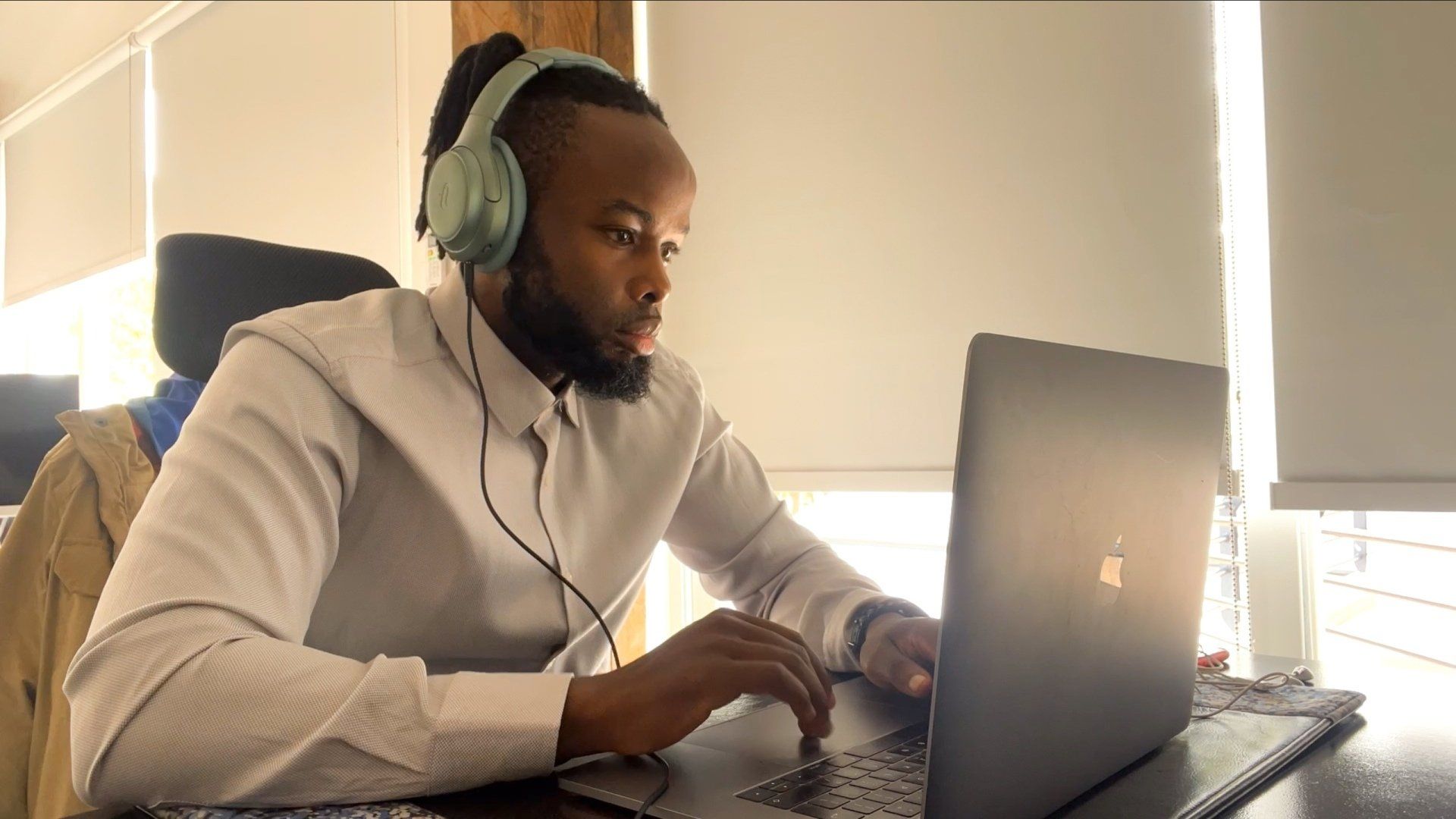
Working in Rwanda - 5 things you should know about working a professional job in Rwanda I recently started working a job, at a desk with a manager, colleagues, and stuff. It has been a real eye-opening experience working for someone again and having Rwandan colleagues who are young, very talented, and solving some of Rwanda’s biggest societal issues & challenges. So in this new blog post, I want to share with you; 5 things you should know about working a professional job in Rwanda. I’ll be talking about work benefits, colleagues, and work culture. And at the end, I’ll be sharing tips on how you can get a professional job in Rwanda as well. I moved to Rwanda to start my own business, a gym. The pandemic hit my business sector hard and I got in a position where I had lots of the time leftover because the gyms were closed. Around the same time, I was made aware of this unique job opportunity. I had time to kill and I could use some extra money, so I applied and got. That’s how I started working part-time as a Content Creator Consultant at a Rwandan tech company called Irembo. A few months after landing this job, I got a second part-time job. This one was for Media Marketing and Communications. Even though I really pursued a job in Rwanda, I have learned something new. Now that I am working these jobs, I realized it’s actually not that bad to work a job in Rwanda. Well, let’s say it’s pretty good. I have learned so many things I didn't know before. And for those of you who are also interested in working in Rwanda, here are 5 things I have learned about working a job, in Rwanda 1. Salary is variable You can negotiate a lot, especially if you are bringing unique skills or experience to the Rwandan job market. The salaries are quite competitive… if you don’t compare them to salaries in western countries. You can live very comfortably here in Rwanda if you are getting about $1000 a month after taxes. Whereas you might need $3000 to live a comfortable life in Europe or $4000 dollar in the United States. Also, you can get paid in foreign currency like the Dollar or Euro, if you are working for a foreign company. This is particularly handy because the Rwandan franc has a high inflation rate. 2. Time is somewhat flexible We all know about the cliché ‘African Time’. I thought that it would not exist in a professional context, but it does. Of course not in an exaggerated manner. For example, the hours people start working are very vague… sometimes they start at 8, sometimes at 9 or 10. And people still tend to be late for meetings. Not very much but still it is rare that physical meetings start at the exact time. Virtual meetings, on the other hand, do start on time. 3. Working benefits Work benefits vary tremendously depending on the company and your position. There is variation in allowances, retirement accounts, 13th month, and travel and home office expenses getting paid. Because I am not full-time employed, I don’t get all the benefits. But after I read them, I was definitely enticed to consider a full-time position 4. Multilingual colleagues In most professional high-paying jobs, everyone speaks at least 2-3 languages. So this is great for foreigners, you won’t feel left out because most of the people are not speaking their native language. Especially at my tech job, there is so much talent from different African countries. 5. There are a lot of job openings! This is the thing that surprised me the most because I hear so many people say they can’t find a job in Rwanda. Now that I’m actually working for a company, I’m realizing how many job opportunities there are here in Rwanda. Basically, every company is always in need of new fresh talent in all positions of the company. The problem is, many of the new jobs that become available within a company never get published outside the company. There is also a lot of job-hopping being done inside companies. Not only directors but also entry-level employees get promoted. Because of this, there are constant shifts being made in companies and a constant flow of job openings. This does not only happen in Rwanda I have been told, but it means that if you are really looking for a job, there are many jobs available. You might be wondering. How can I get a job in Rwanda? Honestly, I don’t know enough yet. But can maybe tell you how I got my 2 jobs, and who knows, this might help you. I got my first job about a year ago at the beginning of 2021. I was made aware of this job opening at a Rwandan tech company called Irembo. How? You ask? Well, because of my videos on youtube. Apparently, one of the recruiters got wind of my videos, checked my other social media platforms like LinkedIn, and got my number through a mutual friend. The job offered was a was not full-time and the salary was seemed oké for Rwandan standards. I don’t know if I am allowed to discuss the exact amount I am getting. According to my contract, I am not allowed to discuss the contract details elsewhere, without written consent. What I can say is that it’s above the typical average Rwandan salary. I didn’t negotiate much because this looked like an exciting job opportunity that came at the right time. For my second job, I got approached by a Moroccan French guy, who was working on a project to establish the e-commerce sector in Rwanda. He saw my videos when he was looking up information about Rwanda. He got in contact with me and educated me about the project. It was a very interesting project so I helped out a bit for free with some content creation. I was planning on making a youtube video about it after it was launched. But then a job position became available, to work as a media marketing and communication expert, so I applied and got the position. This project is more like a start-up and is funded by the Rwandan government and the German giant company GIZ. They pay very well and the challenge here is even greater as I get to lead a small team. In conclusion, I got both my jobs through my social media presents. And that is really what I would advise anyone to do if they are seriously looking for a job in Rwanda. You don’t have to have a youtube channel like me, but you can at least open or update your LinkedIn and Twitter account regularly. Then comes the next question; WHY!? You might be wondering why an entrepreneur like me, who vowed to work for himself to have the freedom to do what he wanted, when he wanted, is now going to work for someone else. Well, I have 4 short & key reasons why. 1. Time To be clear, my first priority and first love here in Rwanda is my gym business. These jobs are both not part-time and they allow me to have the time to operate my other businesses like personal training, youtube, and online consultancies on the side. 2. Money This is, I think, the main reason why everybody gets a job right? This was a great way to earn money, while my gyms business was running slow due to the pandemic restrictions. 3. Connections Having colleagues and meeting new people is something that will benefit me and my business in the long run. As an entrepreneur, I normally don’t have a lot of time to meet other people outside my industry. 4. The Challenge I like challenging myself in the gym and outside the gym as well. Thus working 2 part-time jobs and running my business is one of the greatest challenges I have ever faced in my life. And I like to think that I can do this. I’m multi-talented, I’m good at learning new skills, leading people, and solving problems. And I get to contribute to Rwanda’s development from a different angle. I must say I do have less freedom at the moment. I am working 12-14 hours a day and I have less time for youtube, unfortunately. That’s the price to pay I guess. If you are interested in getting a job in Rwanda, especially a skilled job, I have link-up some job openings in the description of the YouTube video below. Who knows, we might be working together someday. Thank you for reading. Muramuke!
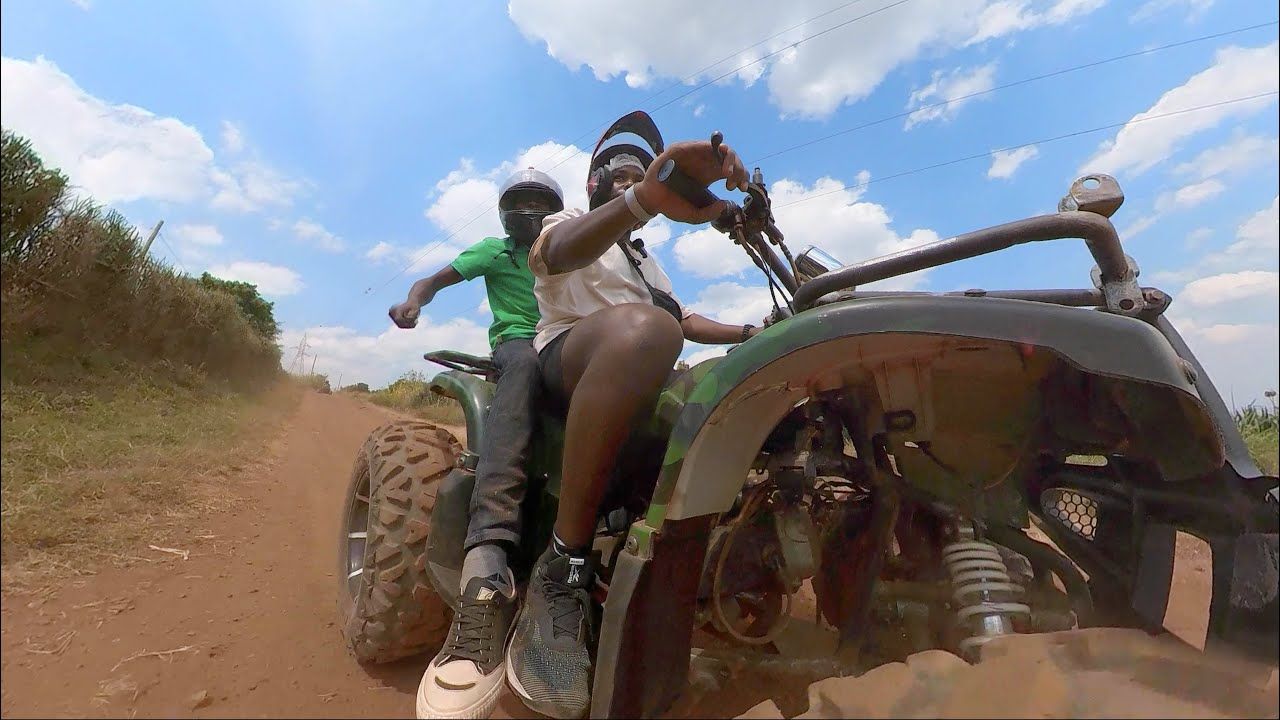
The pandemic is not over yet. Things to do in Kigali during a pandemic are far & few. But going quad riding is a guaranteed fun one! We did this activity before the 3rd lockdown. We went quad riding in Nyamirambo at Fazenda Sengha. You can visit their website www.senga.com for information on the activities and prices. We took the 15min trip. I must say that we had so much fun that we regretted not booking the 30 minute trip. Thanks for reading. Muramuke !
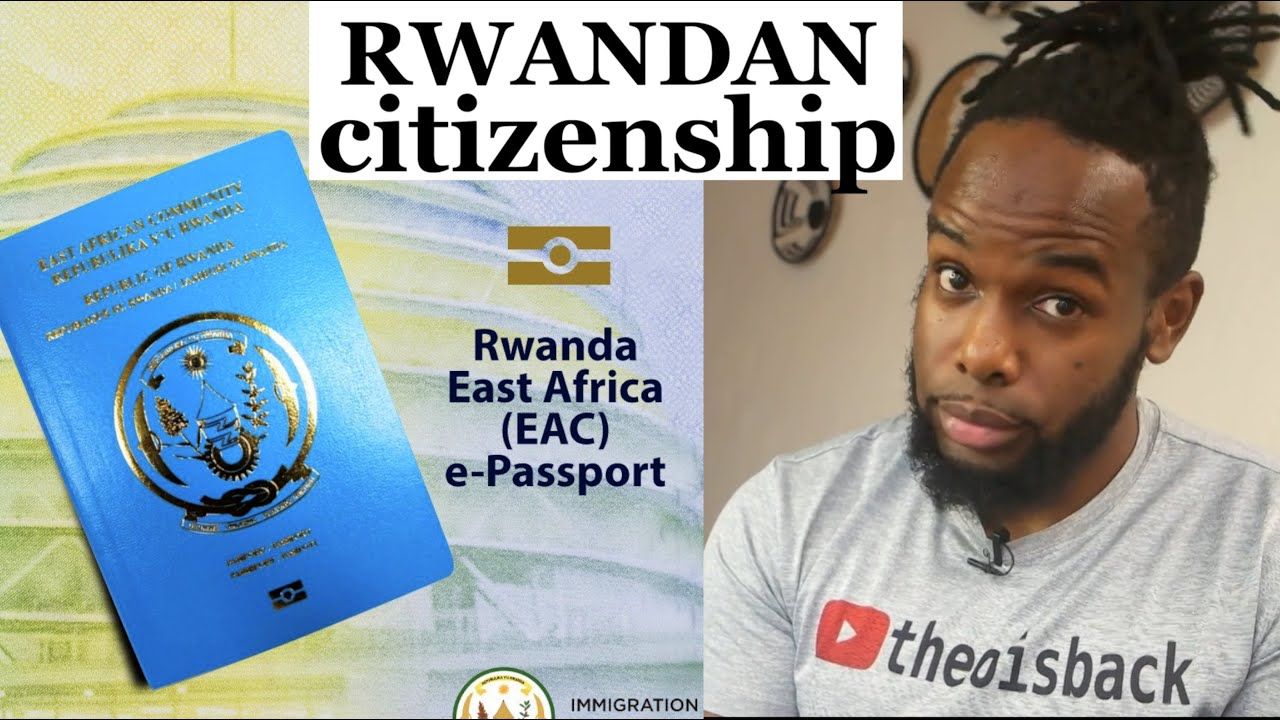
Getting Rwandan citizenship is not easy but it’s definitely worth it. Especially if you are of African descent or Rwandan diaspora. In this blogpost, I share with you the 5 ways you can become an African citizen, by getting Rwandan Citizenship. By territory If you’re born in Rwanda to non-Rwandan parents, you can apply for citizenship once you turn 18. Before that you carry your parent’s nationality. By origin By marriage By recovery Naturalization Bonus Ready to apply for your Rwandan citizenship? Follow the steps here www.migration.gov.rw
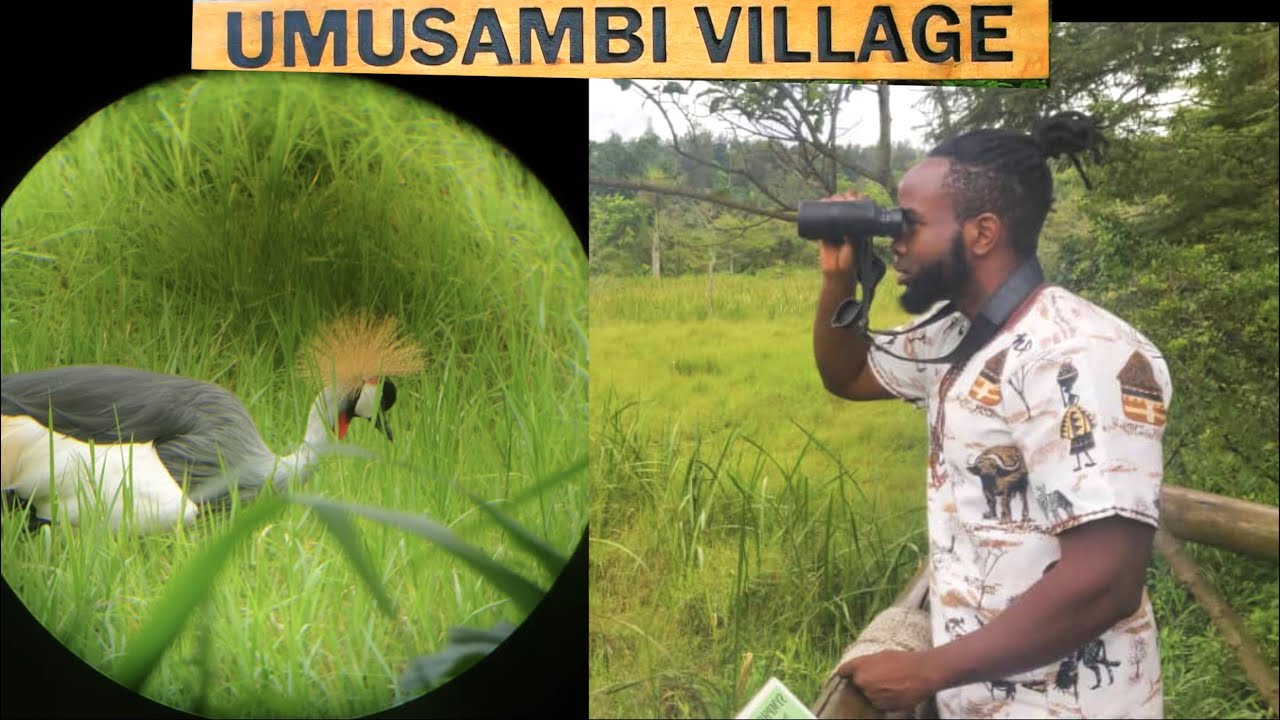
There are a lot of things to do in and around Kigali, but it’s never enough. In this video we visit Umusambi Village. Located 20 minutes outside Kigali. It’s brand new, they opened up mid 2020. In the middle of a pandemic. AL Umusambi village they rescue, protect and take care of endangered grey crowned crane birds who were saved from illegal domestication and/or abuse. Many of these birds cannot fly anymore. Umusambi village is a beautiful 21 hectare nature reserve and a great touristic activity not far from Kigali. Just a nice place to visit and get educated about Rwanda’s wildlife conservation efforts. If you’d like to visit Umusambi Village, this is their official website www.umusambivillage.org Watch the video for some fun vlogging and a lot of info on the crane birds. Thank you for reading. Muramuke !
